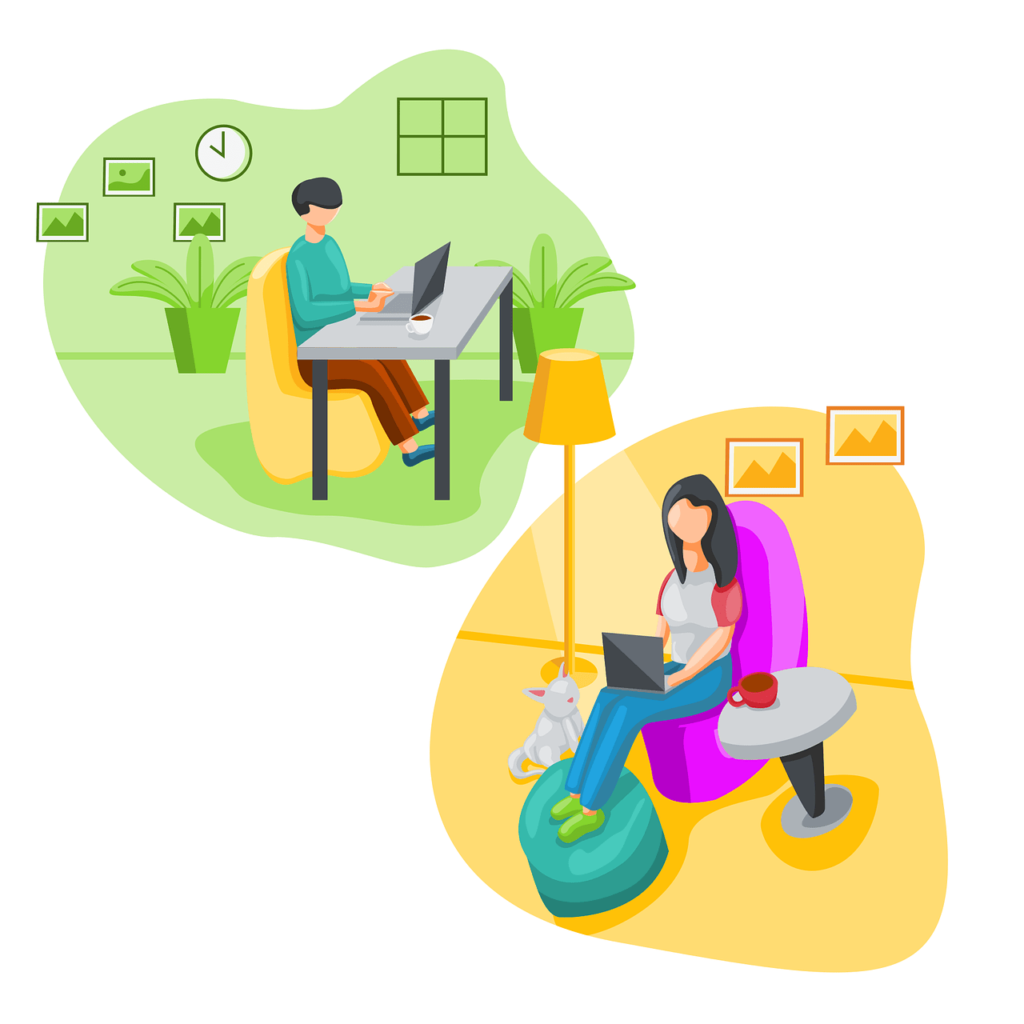We wanted to share everything we know about blogging for beginners with you. In this article, we cover all the essentials to help you kickstart your blogging journey. From choosing a niche and setting up your blog to creating quality content and engaging with your audience, we’ve got you covered. Whether you’re looking to earn some extra income or turn your blog into a full-time gig, we’ll walk you through the ins and outs of the blogging world. Let’s dive in and get you on the path to blogging success! Have you ever thought about starting a blog but didn’t know where to start? Maybe you’re not sure how to choose a blogging platform, or you’re struggling with what to write about. Don’t worry, we’ve got you covered! In this article, we’ll walk you through everything you need to know about blogging for beginners. From setting up your blog to creating engaging content, we’ll help you navigate the world of blogging and set you on the path to success. So grab a cup of coffee, sit back, and let’s get started!

Choosing a Blogging Platform
When it comes to starting a blog, one of the first decisions you’ll need to make is choosing a blogging platform. There are several options out there, each with its own unique features and benefits. Some popular choices include WordPress, Blogger, and Medium. WordPress is one of the most popular blogging platforms, known for its flexibility and customization options. Blogger, on the other hand, is a great option for beginners looking for a simple and user-friendly platform. Medium is a blogging platform that focuses on high-quality content and has a built-in audience. Consider your needs and preferences to choose the platform that’s right for you.
WordPress
WordPress is a powerful and versatile platform that powers millions of websites worldwide. It offers a wide range of themes and plugins, allowing you to customize your blog to fit your unique style and needs. Whether you’re a beginner or an experienced blogger, WordPress is a great choice for creating and managing your blog. With its intuitive interface and robust features, you’ll have everything you need to build a professional-looking blog that stands out from the crowd.
Blogger
Blogger is a straightforward blogging platform owned by Google. It’s free to use and perfect for beginners who want to start blogging without any hassle. With easy-to-use tools and templates, you can create a blog in minutes and start sharing your thoughts with the world. While Blogger may not offer as many customization options as WordPress, it’s a great option for those who prefer simplicity and ease of use.
Medium
Medium is a unique blogging platform that focuses on high-quality content and storytelling. It has a built-in audience of millions of readers, making it a great place to share your writing and connect with like-minded individuals. While Medium doesn’t offer as much customization as WordPress, it’s a fantastic platform for those who want to focus on writing compelling content without worrying about the technical aspects of blogging. If you’re looking to build a following and reach a wider audience, Medium may be the perfect platform for you.
Setting Up Your Blog
Once you’ve chosen a blogging platform, it’s time to set up your blog and make it your own. This involves selecting a domain name, choosing a design theme, and customizing your blog to reflect your unique style and personality. Here are some tips to help you get started:
Choosing a Domain Name
Your domain name is your blog’s address on the internet, so it’s essential to choose a name that’s catchy, easy to remember, and reflects the content of your blog. Consider using keywords related to your niche to help with search engine optimization (SEO) and make it easier for readers to find your blog.
Selecting a Design Theme
Your blog’s design theme sets the tone for your site and creates the first impression for visitors. Choose a theme that reflects your personal style and complements the content of your blog. Most blogging platforms offer a variety of free and premium themes that you can customize to make your blog unique.
Customizing Your Blog
Customizing your blog involves adding a logo, creating a favicon, choosing colors and fonts, and setting up widgets and menus. Take the time to personalize your blog and make it visually appealing to engage your audience. A well-designed blog will attract more readers and keep them coming back for more.

Creating Engaging Content
Now that your blog is set up, it’s time to start creating content that will captivate your audience and keep them coming back for more. Whether you’re writing blog posts, creating videos, or sharing photos, the key to success is to produce high-quality, engaging content that resonates with your readers. Here are some tips for creating content that will stand out:
Understanding Your Audience
Before you start creating content, take the time to understand your target audience. What are their interests, pain points, and preferences? By knowing your audience, you can tailor your content to meet their needs and provide value to them. Consider conducting surveys, reading comments, and engaging with your readers to get to know them better.
Planning Your Content Calendar
Creating a content calendar will help you stay organized and consistent with your blogging efforts. Plan your content in advance, including topics, keywords, and publishing dates. This will ensure that you have a steady stream of content to share with your audience and help you stay on track with your blogging goals.
Writing Compelling Blog Posts
When writing blog posts, aim to create content that is informative, entertaining, and engaging. Use a conversational tone, break up your content with subheadings and bullet points, and include visuals such as images and videos to enhance the reader’s experience. Consider using storytelling techniques to connect with your audience on a personal level and make your content more relatable.
Creating Visual Content
Visual content such as images, infographics, and videos can help bring your blog to life and capture your reader’s attention. Use high-quality visuals that are relevant to your content and add value to your posts. Visual content is also more shareable on social media and can help drive traffic to your blog.

Growing Your Audience
Building an audience for your blog takes time and effort, but with the right strategies, you can attract readers and grow your following. Here are some tips for growing your audience and increasing your blog’s visibility:
Engaging on Social Media
Social media is a powerful tool for promoting your blog and connecting with your audience. Create profiles on popular social media platforms such as Facebook, Twitter, and Instagram, and share your blog posts and updates regularly. Engage with your followers, join relevant groups and communities, and use hashtags to reach a broader audience.
Networking with Other Bloggers
Networking with other bloggers in your niche can help you expand your reach and reach new readers. Connect with influencers and popular bloggers in your industry, guest post on their blogs, and collaborate on joint projects. Building relationships with other bloggers can help you gain exposure and attract more traffic to your blog.
Optimizing for SEO
Search engine optimization (SEO) is essential for increasing your blog’s visibility and ranking in search engine results. Use relevant keywords, optimize your meta tags and descriptions, and create high-quality content that is valuable to your readers. Consider using tools like Google Analytics to track your progress and make improvements to your SEO strategy over time.

Monetizing Your Blog
Once you’ve established your blog and built a loyal audience, you may be interested in monetizing your blog and earning income from your efforts. There are several ways to monetize a blog, from affiliate marketing and sponsored content to selling digital products and services. Here are some popular monetization strategies to consider:
Affiliate Marketing
Affiliate marketing involves promoting products or services from other companies and earning a commission for sales or leads generated through your referral links. Join affiliate programs related to your niche, and create content that includes affiliate links to earn passive income from your blog.
Sponsored Content
Sponsored content involves partnering with brands to create promotional posts, reviews, or sponsored articles on your blog. Companies pay you to promote their products or services to your audience, and you can earn money through sponsored posts, sponsored reviews, and sponsored social media campaigns.
Selling Digital Products
Selling digital products such as e-books, online courses, or digital downloads is a great way to monetize your blog and provide value to your audience. Create digital products related to your niche, promote them on your blog, and sell them to your readers for a profit.
Offering Services
If you have expertise in a particular area, consider offering services such as consulting, coaching, or freelance writing through your blog. Use your blog as a platform to showcase your skills and attract clients who are interested in working with you.

Conclusion
Starting a blog can be a rewarding and fulfilling experience, allowing you to share your passions, connect with like-minded individuals, and even earn income from your efforts. With the right strategies and a commitment to creating high-quality content, you can build a successful blog that stands out from the crowd and attracts a loyal audience. Whether you’re a beginner looking to start a blog or an experienced blogger looking to take your blog to the next level, we hope this article has provided you with the information and inspiration you need to succeed. Happy blogging!
